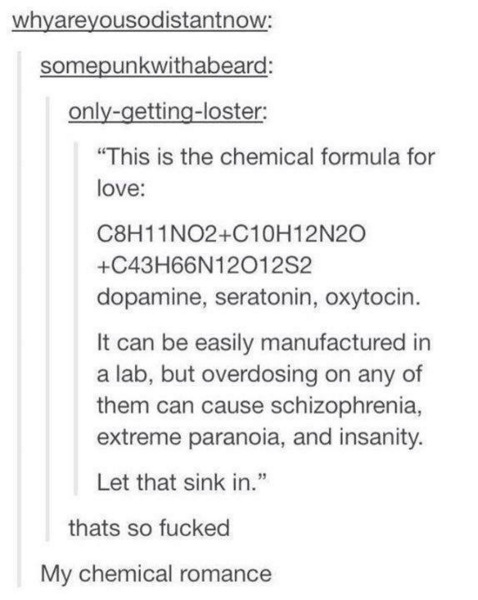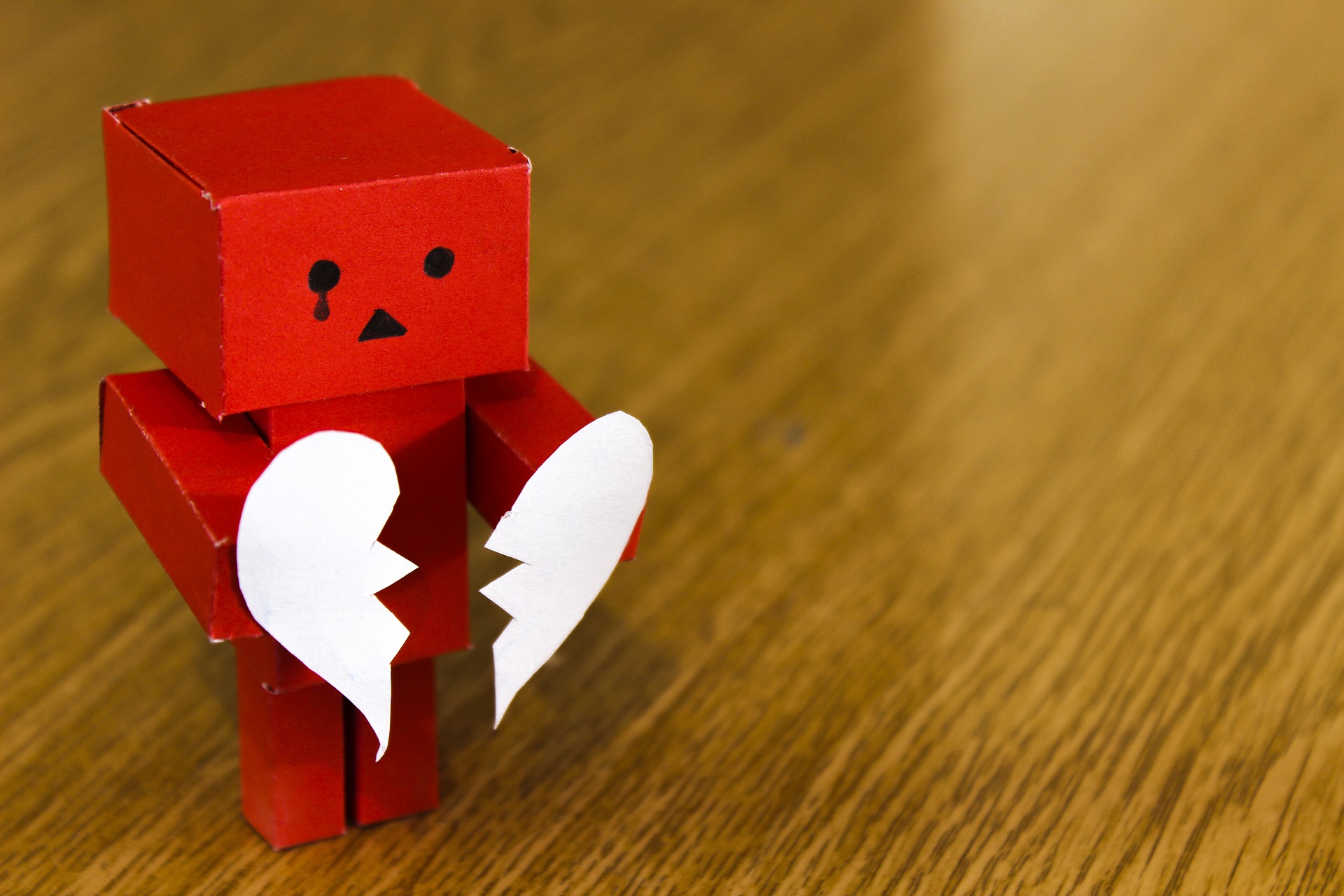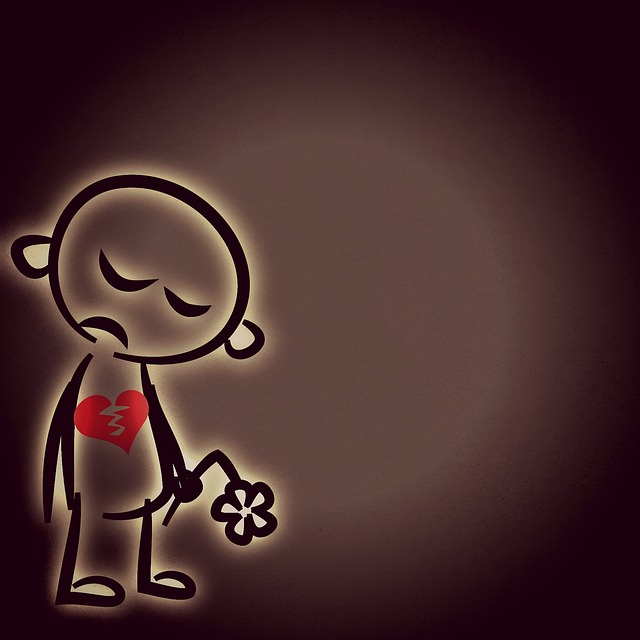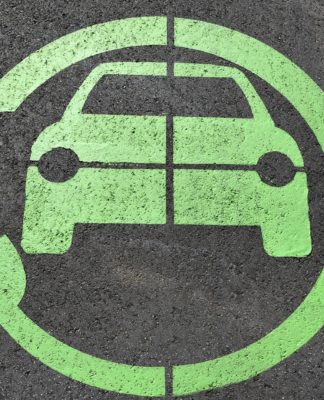
Valentine’s Day has passed. Many celebrated. Many were happy not to. Many of us are in happy and healthy relationships, and many of us are single, looking. But we talk about love, always, in this country, in our society, as something to be attained – something like a pot of gold at the end of the rainbow. When you find it, everything else, everything that wasn’t right in the world, simply fades away. Everything else is simply noise when you’re with, finally, the one.
But we didn’t discuss a very real component of romantic love: It hurts when it ends.
There are, of course chemicals involved in the process of falling, and being, deep in love. To illustrate this point, we turn to the brilliant amateur scientists on Reddit for a visual representation:

And, if you’ve ever experienced the (painful) end of a relationship, you understand the uncontrollable roller coaster of emotions generally defined as heartbreak that comes with it. And while heartbreak, just by name alone, sounds like something that should stay relegated to romantic films and novels, science has proven the description might not be too hyperbolic after all: Heartbreak does indeed cause quantifiable, physical, real pain.

Your brain controls just about every last thing in your body. This includes the security and protection of said body, and, when you’re in the midst of a stressful, harmful, potential dangerous, and certainly traumatic situation, your brain immediately switches over to the “fight or flight” mindset.
(Briefly: First defined by Walter Bradford Cannon, and known also as hyperarousal, or acute stress response, “fight or flight” is a “physiological reaction that occurs in response to a perceived harmful event, attack, or threat to survival.”)
Your brain, in this response, starts to pump out adrenaline and cortisol, which lead to increased heart rate and hyperventilation. And that? That causes panic attacks. That causes anxiety. That causes you to shut out everything else except for the situation in front of you; everything except for the one telling you that it’s time to have “the talk.”
Ouch.
Your brain, thus, translates this painful experience into quantifiable, physical, real pain.
It also reduces your digestive activity – meaning you won’t have an appetite. When you feel like you can’t/don’t want to eat after a breakup, it is because your body actually can’t/doesn’t want to eat after a breakup.

When you’ve experienced heartbreak, your somatosensory cortices (the part of the brain that registers physical pain) go haywire. But, more science to the rescue: Studies, perhaps unsurprisingly then, show that taking acetaminophen (Tylenol, Mapap, etc.) can actually help ease the pain of heartbreak.
Yes, taking a painkiller, treating your breakdown like the hangover/fever/punch-in-the-gut that it is, really will help reduced the emotional pain of losing your significant other, you know, the one, forever.
It’s at least something to help while the other painkiller, the “…time heals all wounds” treatment, takes its sweet time kicking in.
And, cutting that thing (person) out of your life actually helps as well: Seeing the cause of your pain, i.e. a picture of your ex (especially with someone new), reactivates those somatosensory cortices and causes you pain anew. You’re not crazy for deleting their pictures from Facebook/Insta/etc., or ripping up their physical ones…
Or at least just putting them in a shoebox until you’ve had proper time to process.
But, good news, there are healthier ways to help with this: The same endorphin-releasing things you’ve probably heard help with depression and making life changes, i.e. spending time with close friends, exercising, reading, traveling, cooking, doing whatever brings you joy, will also help you get over your breakup.
Read this next: That Girl: Dating In Your Thirties (Ep.1)
















